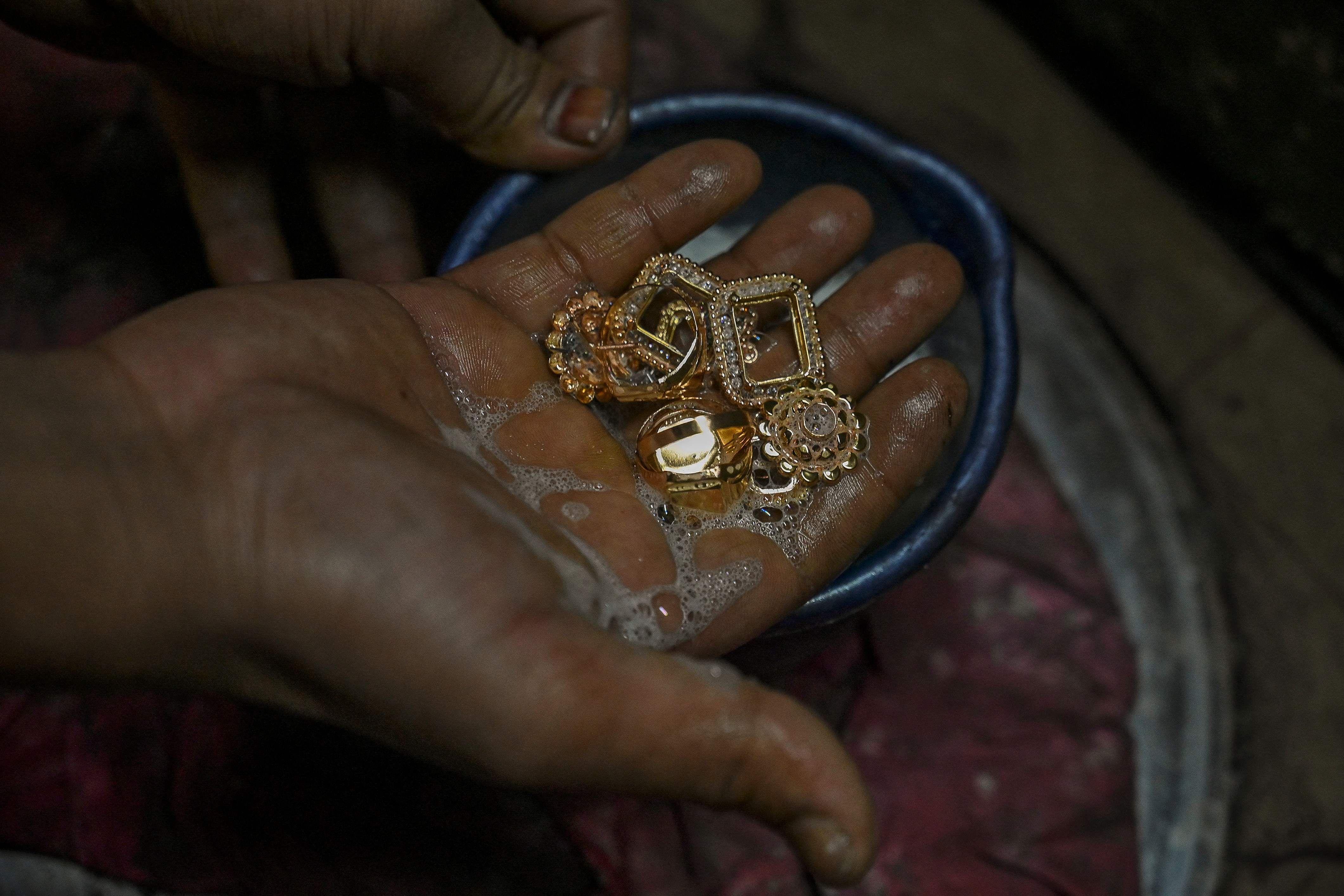Rising number of gold auctions signals growing financial distress in India amid Covid-19
Sign up now: Get insights on Asia's fast-moving developments

In India, gold ornaments are considered an investment to tide families over tough financial times.
PHOTO: AFP
NEW DELHI - Ms Sandhya Babla, 58, took out a loan by using her family's gold jewellery as collateral after losing her job last year as a teacher.
Last month (June), Ms Babla was informed by the financial institution which provided the loan that extending its tenure would mean an additional 5 percentage points in interest or from 11 per cent to 16 per cent.
The alternative was for the collateral to be auctioned.
"It is very unfair. I didn't want to pay that higher interest and they threatened to auction my gold. So I just shifted the gold loan to another bank. It is my family's jewellery that I have given and I don't want to lose it," she said.
"I knew how to save my jewellery. But those who don't know will be stuck and their jewellery auctioned off," said Ms Babla, whose gold loan is worth 200,000 rupees (S$3,670).
But she acknowledged being "stuck in a debt trap".
In India, gold ornaments, with designs unique from region to region, are passed down from generation to generation or bought during weddings and festival times. They are also considered an investment to tide families over tough financial times.
India, which was the fifth-largest importer of gold in the world last year, has been hit by two Covid-19 waves, the second one this year even more devastating than the first. The country has gone into lockdown twice - albeit the second one less strict than the first - and both hit amid a slowing economy and deepening job losses. The lockdowns lead to wage cuts in the private sector.
An uptick in gold auctions is seen as another sign of the distress within the economy.
"Yes, we have seen an increase in auctions by gold loan lenders. This is on account of the combined effect of gold price falls and challenges on repayments faced by borrowers due to the economic stress from the pandemic," said Mr Krishnan Sitaraman, senior director and deputy chief ratings officer of CRISIL Ratings.
Gold prices reached a peak of US$2,048 an ounce in early August last year and this has come down to US$1,815 on Tuesday (July 20).
In India, banks or financial institutions can lend up to 90 per cent of the value of the gold put up as collateral. When the loan period, which can be for as little as three months, is repaid in full, either through instalments or in one lump sum, the gold is returned to the borrower. If not, what has been put up as collateral will be auctioned off.
"During the first wave of the pandemic there was no significant uptick in auctions. But auctions increased during the second wave as the lockdown delayed the economic recovery to some extent and impacted small businesses, who are the major borrowers when it comes to gold loans," said Mr Saurabh Kumar, head of gold loans at IIFL Finance, a finance and investment services company.
"Also, a decline in gold prices aligned with the second wave further pushed up auctions. However, we believe this is a transitory phase. We are seeing increased economic activity again and things seem to be getting better for borrowers," he added.
Manappuram Finance, a non-banking finance company, said the amount of gold it auctioned off in the past financial year was worth 4.12 billion rupees. In the previous year, the total auctioned off amounted to 1.16 billion rupees.
"We've auctioned a record 1,000kg of pawned gold in the March quarter," Manappuram managing director and chief executive V.P. Nandakumar told the Press Trust of India.
Experts believe many people were already struggling before Covid-19 struck.
"I think it's very clear the economic slowdown in India for the past three years, aggravated by Covid-19 for 1½ years, led to a huge loss of income especially among households that don't have much savings," said Professor N.R. Bhanumurthy, vice-chancellor of Bengaluru Dr B.R. Ambedkar School of Economics University. "The second wave has affected many in the middle and upper-middle classes as well. So that has started showing up."
He added: "The cost of living keeps increasing. Incomes are declining... it is putting pressure on savings."


